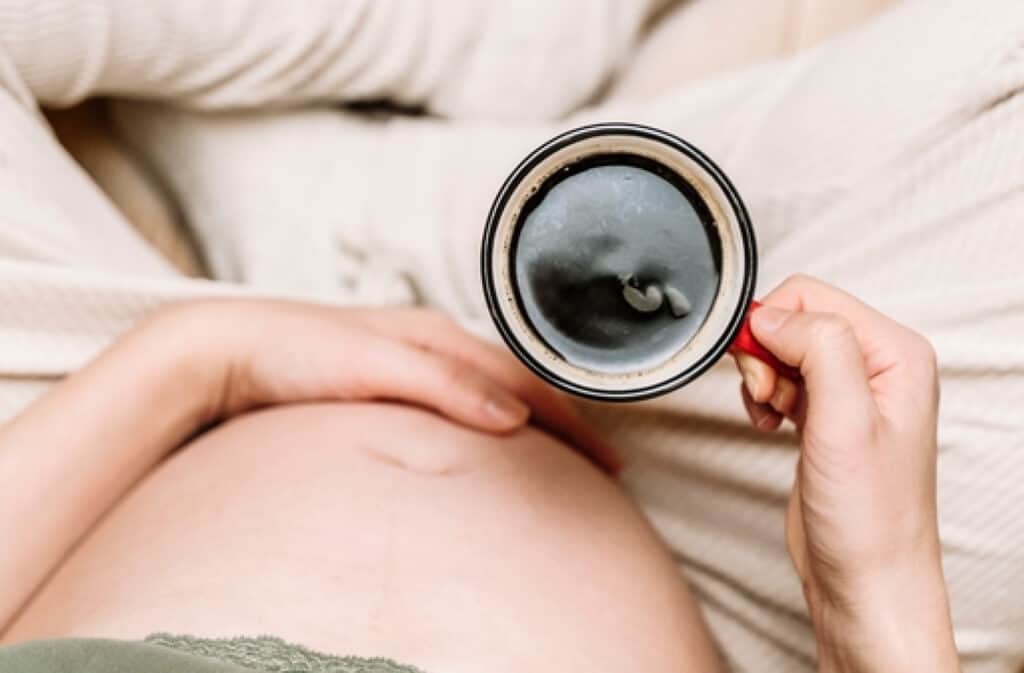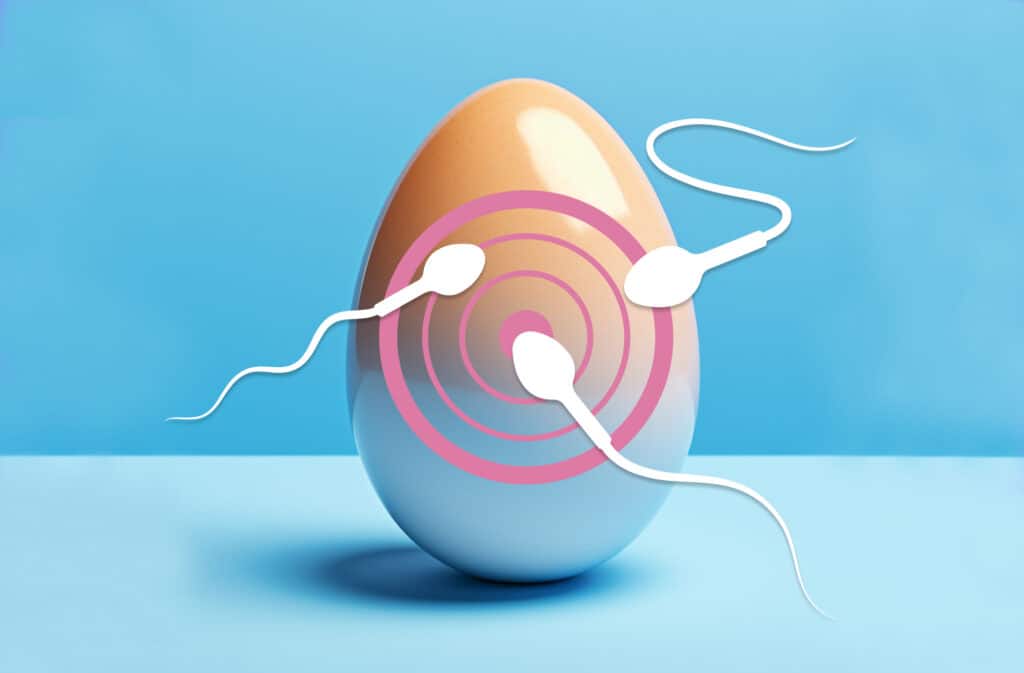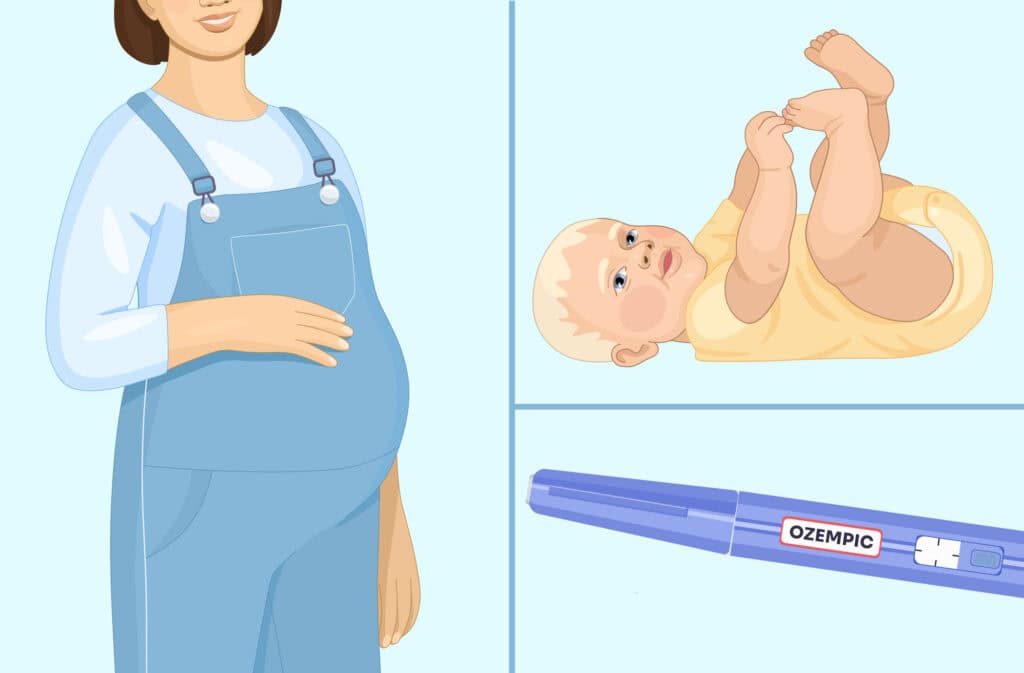Femia > Health Library > Pregnancy > Pregnancy health > Can you drink coffee while pregnant? Caffeine safety, limits, and benefits explained
Can you drink coffee while pregnant? Caffeine safety, limits, and benefits explained

- Updated Feb 10, 2025
- Published
CRAFTED BY HUMAN
Crafted by human At Femia, we provide accurate and up-to-date information at every stage of your journey, from trying to conceive, pregnancy and postnatal support. All content is created by a real person based on in-depth research and own professional experience. Femia ensures that you will receive expert advice, strict accuracy and a personalized approach from our authors/medical experts. Learn more about our editorial policy.
FACT CHECKED
Fact checked At Femia Health, we maintain the highest standards of editorial excellence in delivering content focused on helping you conceive, guiding you through pregnancy, and supporting you postpartum. Explore our content review principles to learn how we ensure the accuracy and quality of our health and lifestyle tips for every stage of your journey.
Too much caffeine can put your baby at risk, so it’s important to limit caffeine while pregnant. Experts recommended sticking to a limit of 200 mg of caffeine a day during pregnancy; anything above this is considered excessive caffeine intake and could put your baby at risk of low birth weight and stillbirth. Many find that decaf coffee works as a great replacement for coffee.
If coffee is a crucial part of your morning routine, you’re probably desperate to know the answer to the question, ‘Can I drink coffee while pregnant?’ If you don’t feel like yourself in the morning until you’ve had a hot coffee, the thought of nine months without it might seem unbearable. Luckily, there’s no reason to stop drinking coffee during pregnancy.
However, it’s essential to understand how much caffeine is in your drinks to ensure you stay under the limit. Don’t forget that chocolate contains caffeine too, so make sure to include this in your calculations.
Femia offers a personalized meal plan, symptom tracking, and more according
to your pregnancy journey
Is it safe to drink coffee while pregnant?
Yes, drinking a standard cup of coffee during pregnancy won’t harm you or your baby. However, monitoring your caffeine consumption and staying under the recommended daily allowance of 200 mg during pregnancy is essential.
If you add up everything you eat and drink, you might be surprised to find out how much caffeine you consume daily. Keep track of how much you consume to know when you’ve hit your caffeine limit. Pregnancy is the perfect time to start new habits and start making healthier choices.
👉Find out more: Can you ride roller coasters while pregnant? Understanding the risks of early pregnancy
Caffeine intake in food and drinks
It’s not just coffee you need to consider; you can also get caffeine from other sources. Tea, sodas, energy drinks, and chocolate contribute to your daily caffeine allowance. Take a look at the caffeine content table below:
| Source | Serving size | Caffeine (mg) |
|---|---|---|
| Coffee (filtered) | 200 ml | 90 |
| Coffee (instant) | 200 ml | 90 |
| Coffee (espresso) | 200 ml | 80 |
| Coffee (decaffeinated) | 200 ml | 4 |
| Black tea | 250 ml | 55 |
| Green tea | 250 ml | 38 |
| Tea (decaffeinated) | 250 ml | 8 |
| Cola | 355 ml | 37 |
| Energy drinks | 250 ml | 80 |
| Dark chocolate | 14 g (two squares) | 7 |
| Milk chocolate | 14 g (two squares) | 2 |
It’s crucial to pay attention to the serving size, too. For example, the coffee servings above are listed as 250 ml, but a take-out coffee from most vendors will be much larger. A single takeout coffee could take you over the daily caffeine limit at some stores, so checking the caffeine content before purchasing is vital.
How much caffeine can you have while pregnant?
The American College of Obstetricians and Gynecologists (ACOG) recommends consuming no more than 200 mg of caffeine a day during pregnancy. Consuming more than 200 mg of caffeine a day may put your baby at risk of miscarriage or low birth weight.
200 mg of caffeine daily is considered safe for you and your developing baby. 200 mg might sound like a lot, but it’s just a 12-ounce cup of coffee, which is bad news for coffee lovers. The good news is you can switch to decaf for the rest of the day.
Some experts think pregnant women should avoid caffeine altogether. A 2020 research review by Reykjavik University published in the British Medical Journal concluded that women should avoid caffeine altogether during pregnancy. However, this review failed to change the minds of the US experts at ACOG, who still feel moderate caffeine consumption is safe during pregnancy.
Why is caffeine bad for pregnancy?
Some caffeine crosses the placenta and reaches your baby when you drink coffee. Your developing baby’s body is less able to process the caffeine, so your baby is exposed to the caffeine for longer. High caffeine consumption during pregnancy can put your baby at risk of increased heart rate and low birth weight. Some of the potential risks of consuming too much caffeine during pregnancy include:
Poor maternal sleep
Rest is vital during pregnancy, and drinking too much caffeine can leave you struggling to sleep at night. You should avoid caffeine for at least eight hours before you want to sleep.
Increased heart rate
A 2023 review published in Cureus found maternal caffeine consumption was linked to increased fetal heart rate. They also found that the babies spent less time sleeping in the womb.
Low birth weight
A 2021 study published in Jama Network found that even moderate caffeine consumption during pregnancy increased the risk of low birth weight. However, these findings are at odds with other studies, which is why most experts say moderate caffeine consumption is considered safe. It’s up to you to make up your own mind about what you feel is safe.
Bleeding
A 2020 study published in the BMC Pregnancy and Childbirth found that heavy coffee consumption was associated with bleeding during early pregnancy.
Miscarriage and stillbirth
A 2021 study published in the European Journal of Obstetrics, Gynaecology and Biology found that women who drank over 300 mg of caffeine per day had an increased risk of experiencing a stillbirth.
A 2022 study published in Frontiers in Nutrition found that caffeine consumption during pregnancy increased the risk of miscarriage and pregnancy loss.
Can I drink decaf coffee while pregnant?
Yes, decaf coffee is an awesome alternative to regular coffee during pregnancy. Decaf coffee only contains trace amounts of caffeine, making it safe to drink during pregnancy. Plus, it has all the flavor of regular coffee, making it an easy switch.
Benefits of drinking coffee while pregnant
Drinking small amounts of coffee could bring some benefits, but deciding whether the benefits outweigh the potential risks is up to you. Remember to keep your daily consumption below 200 mg. Caffeine could perk you up in the morning if you’re struggling with fatigue. It can also boost your mood and help you face the day.
A 2024 study found moderate coffee consumption was associated with lower gestational diabetes levels. However, the same study found that half of all coffee drinkers exceeded 200 mg daily, so tracking your intake is essential.
Caffeine limit during pregnancy: What to avoid
If this is the first time you’ve paid close attention to your caffeine intake, you may be surprised to discover how much caffeine you consume. The following tips will help you to stay under the safe caffeine limit for pregnancy:
- Write it all down. To stick to the limit, monitor your intake. The best way to do this is to write down the caffeine you consume. You can use the notes app on your phone or a food tracker app that records caffeine. Ensure it all gets recorded to know when you’ve reached your daily limit.
- Ask how much caffeine is in your drink. When we guess we tend to underestimate how much caffeine we consume. If you’re buying a coffee, your server might be able to tell you the caffeine content of the drinks, helping you choose the right one. Avoid large coffees or highly caffeinated drinks like espresso shots, and instead opt for low-caffeine drinks.
Safe alternatives to coffee during pregnancy
While you can still enjoy that first cup of coffee of the day, you’ll need to find caffeine-free alternatives for the rest of the day after you’ve hit your caffeine limit. Pregnancy is a great time to find new healthy alternatives to your favorite foods and drinks. Luckily, there are lots of drinks to choose from, including:
- Decaffeinated coffee. Many swear that decaf coffee has all the taste and none of the caffeine. Switching to decaffeinated coffee might be an easy way to keep your tastebuds happy without disrupting your routine.
- Herbal and fruit teas. Herbal and fruit teas can be a soothing option to replace your usual caffeinated coffee. Many people drink ginger or peppermint tea to relieve nausea. Check the label before trying a new fruit or herbal tea. Some teas contain caffeine, so you’ll want to avoid these.
- Warm milk. Try some warmed milk if you’re looking for a hug in a mug. Your baby will benefit from the calcium and nutrients in the milk, and you’ll enjoy a guilt-free warm drink.
- Water. According to the American College of Obstetricians and Gynaecologists, you should drink between eight and 12 glasses of water daily during pregnancy. Staying hydrated can reduce common pregnancy problems, such as constipation and fatigue. If you don’t usually drink water, now is the perfect time to increase your intake. If you’re suffering from pregnancy nausea, try adding ice and lemon for refreshment.
4 Tips for coffee lovers during pregnancy
Giving up caffeine during pregnancy isn’t easy, especially if you try to go cold turkey. If you’re struggling to ditch the coffee, the following tips might help:
Take it one drink at a time
Going from lots of caffeine to zero caffeine in an instant can leave you feeling rubbish. Headaches, fatigue, and nausea are common symptoms of caffeine withdrawal. Instead of trying to go cold turkey, gradually decrease your daily caffeine intake. Start by switching one caffeinated drink to a decaffeinated alternative. Repeat this process every few days until you are under the 200 mg daily limit for caffeine.
Get enough rest
If you’re using caffeine as an energy boost to get you through the day, you’re going to notice when you cut it out. Though fatigue is a common pregnancy symptom, getting enough sleep at night can help your energy levels during the day.
Make it a small
An easy way to reduce your caffeine intake is to drink smaller coffees. If you usually have a regular, switch to a small. Make sure you check the caffeine content of your new drink so you can accurately work out how much caffeine you consume each day.
Add milk
Diluting coffee with milk can reduce the caffeine content of your drink. Adding plenty of milk to a half-shot of coffee could help get you under the daily recommended caffeine intake.
👉Find out more: Can pregnant women eat sushi? What you need to know about sushi during pregnancy
When to talk to a healthcare provider
Contact your doctor for advice and support if you struggle with giving up caffeine. Speak to your doctor if you are consuming over the recommended daily allowance. If you’re experiencing high blood pressure or insomnia, caffeine could be exacerbating these issues. Try the steps above to reduce your caffeine intake, and contact your doctor if they aren’t working.
Femia offers a personalized meal plan, symptom tracking, and more according
to your pregnancy journey
Questions from the Femia community
Should I avoid coffee entirely in the first trimester?
Caffeine consumption under 200 mg daily is considered safe during the first trimester. There is no need to give up caffeine entirely, but you do need to stay under the 200 mg limit to ensure the healthy development of your baby.
Does caffeine intake affect breastfeeding later?
If you drink caffeine while breastfeeding, some of the caffeine will pass into your breast milk. All babies react differently to caffeine, but it can cause sleep disturbances in some babies. You should aim to drink under 200 mg a day when breastfeeding.
Are there any benefits to cutting out caffeine completely during pregnancy?
Yes, while caffeine may be a cultural norm, it does carry health risks. Cutting out caffeine can reduce your risk of insomnia and heartburn. However, as long as you stay under the 200 mg daily limit for caffeine, it’s considered safe.
The bottom line
Drinking coffee during pregnancy is fine as long as you consume under 200 mg daily. Anything under 200 mg is considered moderate consumption and is safe for pregnancy. If you go over this limit, however, you could be putting your baby at risk of harm.
Your developing baby can’t process caffeine as well as you, so too much caffeine can impact their development. Drinking over 200 mg of caffeine a day could put your baby at risk of low birth weight, brain changes, and miscarriage.
It’s not just your coffee you need to consider. There is also caffeine in teas, sodas, energy drinks, and chocolate, so it’s crucial to look at all potential sources of caffeine while pregnant. If you are worried about your caffeine consumption or are struggling to quit, consider contacting your healthcare provider for help.
References
- ACOG (2020) “How much coffee can I drink while I’m pregnant?” [Accessed 2024] https://www.acog.org/womens-health/experts-and-stories/ask-acog/how-much-coffee-can-i-drink-while-pregnant#:~:text=Research%20suggests%20that%20moderate%20caffeine,energy%20drinks%2C%20and%20soft%20drinks.
- Choi, H., Koo, S. & Park, HY. Maternal coffee intake and the risk of bleeding in early pregnancy: a cross-sectional analysis. BMC Pregnancy Childbirth 20, 121 (2020). https://doi.org/10.1186/s12884-020-2798-1.
- EFSA NDA Panel (EFSA Panel on Dietetic Products, Nutrition and Allergies), 2015. Scientific Opinion on the safety of caffeine. EFSA Journal 2015; 13(5):4102, 120 pp. doi:10.2903/j.efsa.2015.4102.
- Gleason JL, Tekola-Ayele F, Sundaram R, et al. Association Between Maternal Caffeine Consumption and Metabolism and Neonatal Anthropometry: A Secondary Analysis of the NICHD Fetal Growth Studies–Singletons. JAMA Netw Open. 2021;4(3):e213238. doi:10.1001/jamanetworkopen.2021.3238 https://jamanetwork.com/journals/jamanetworkopen/fullarticle/2777881.
- Heazell, Alexander E P et al. “Associations between consumption of coffee and caffeinated soft drinks and late stillbirth-Findings from the Midland and North of England stillbirth case-control study.” European journal of obstetrics, gynecology, and reproductive biology vol. 256 (2021): 471-477. doi:10.1016/j.ejogrb.2020.10.012 https://pubmed.ncbi.nlm.nih.gov/33218821/.
- Jafari, Alireza et al. “Relationship between maternal caffeine and coffee intake and pregnancy loss: A grading of recommendations assessment, development, and evaluation-assessed, dose-response meta-analysis of observational studies.” Frontiers in nutrition vol. 9 886224. 9 Aug. 2022, doi:10.3389/fnut.2022.886224 https://pmc.ncbi.nlm.nih.gov/articles/PMC9396037/.
- Kukkonen, Anni et al. “Maternal caffeine, coffee and cola drink intake and the risk of gestational diabetes – Kuopio Birth Cohort.” Primary care diabetes vol. 18,3 (2024): 362-367. doi:10.1016/j.pcd.2024.02.005 https://pubmed.ncbi.nlm.nih.gov/38423827/.
- Lakin H, Sheehan P, Soti V (November 04, 2023) Maternal Caffeine Consumption and Its Impact on the Fetus: A Review. Cureus 15(11): e48266. doi:10.7759/cureus.48266 https://www.cureus.com/articles/173540-maternal-caffeine-consumption-and-its-impact-on-the-fetus-a-review.

Discover how to improve egg quality with 9 expert tips. Learn signs of good egg quality and strategies to increase fertility, even after 35. Femia’s guide to optimal reproductive health.

Discover the parental guide to newborn cues, including how to differentiate and respond to your baby’s body language that indicates hunger, sleep, discomfort, and more.

Discover how Ozempic affects fertility and pregnancy. Learn about ‘Ozempic babies’, potential risks, and alternatives for managing weight while trying to conceive.

